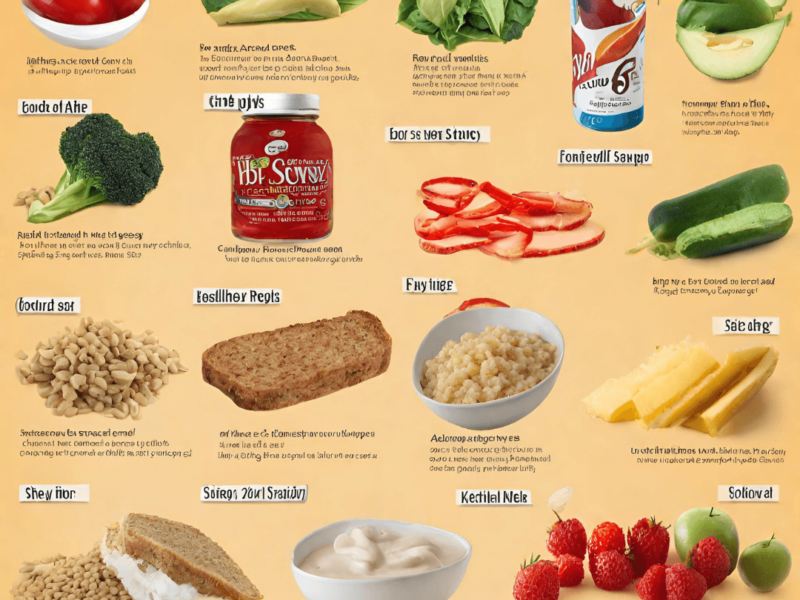The Surprising Impact of Dehydration on the Body: Discover the Effects and Effective Prevention Strategies
Dehydration is a condition that occurs when your body doesn’t have enough fluid to function properly. It may seem like a minor concern, but the truth is, dehydration can have a significant impact on your overall health. In this article, we will explore the effects of dehydration on your body and provide you with effective prevention strategies to keep yourself properly hydrated.
Understanding Dehydration
Dehydration occurs when you lose more fluid than you intake. This can happen due to various reasons such as excessive sweating, not drinking enough water, vomiting, diarrhea, or even certain medical conditions. When your body lacks sufficient fluids, it disrupts the balance of essential electrolytes, primarily sodium and potassium, which are crucial for the proper functioning of your cells.
The Effects of Dehydration on Your Physical Health
1. Reduced Cognitive Function
Dehydration can impair your cognitive function, leading to difficulties in focus, concentration, and memory. Studies have shown that even mild dehydration can negatively impact brain function and mood.
2. Increased Risk of Heat Exhaustion and Heatstroke
When you’re dehydrated, your body struggles to regulate its temperature. This makes you more susceptible to heat-related illnesses such as heat exhaustion and even life-threatening heatstroke.
3. Impaired Exercise Performance
If you’re an athlete or engage in regular physical activity, dehydration can significantly impact your performance. Dehydration reduces endurance, strength, and overall athletic ability, making it harder for you to achieve your fitness goals.
4. Digestive Problems
The lack of proper hydration can lead to digestive issues such as constipation and stomach ulcers. Water is essential for maintaining healthy digestion and the efficient movement of waste through your gastrointestinal tract.
5. Impaired Kidney Function
Your kidneys play a vital role in filtering waste products and toxins from your body. Dehydration puts added stress on your kidneys, reducing their ability to function optimally. Over time, this can lead to kidney stones and other kidney-related problems.
6. Skin Problems
Dehydration affects the health and appearance of your skin. Without enough water, your skin loses elasticity and can become dry, dull, and prone to wrinkles. Proper hydration is essential for maintaining healthy and vibrant skin.
7. Increased Risk of Urinary Tract Infections
When you don’t drink enough water, it decreases the frequency of urination. This reduced urination can increase the risk of urinary tract infections as bacteria have more time to multiply in the urinary tract.
Effective Prevention Strategies
1. Drink Sufficient Water
The most effective way to prevent dehydration is by drinking enough water throughout the day. The recommended daily intake is around 8 cups or 2 liters for an average adult. However, this may vary depending on factors such as climate, activity level, and overall health. Listen to your body’s thirst cues and aim to stay adequately hydrated.
2. Monitor Fluid Loss
If you engage in strenuous activities or exercises that induce excessive sweating, it’s essential to replace lost fluids. Carry a water bottle and make a conscious effort to drink before, during, and after physical exertion.
3. Consume Water-Rich Foods
In addition to drinking water, you can increase your hydration levels by consuming foods high in water content. Fruits and vegetables like watermelon, cucumber, oranges, and lettuce are excellent choices to keep you hydrated.
4. Avoid diuretic beverages
Certain drinks, such as alcohol and caffeinated beverages like coffee and soda, can increase fluid loss by promoting urine production. Limit your intake of diuretic beverages, especially when you’re already at risk of dehydration.
5. Be Mindful of Medications
Some medications, such as diuretics and certain antibiotics, can increase the risk of dehydration. If you’re taking any medication, consult your healthcare provider about potential side effects on hydration levels.
6. Pay attention to the signs
Monitor your body for signs of dehydration such as dark yellow urine, dry mouth, fatigue, dizziness, and reduced urine output. If you experience these symptoms, increase your fluid intake immediately.
7. Optimize Your Environment
If you live in a hot climate or work in a physically demanding job, take proactive measures to optimize your environment for hydration. Keep a water bottle readily available, seek shade when possible, and take breaks to rest and rehydrate.
8. Teach Kids about Hydration
Educate children about the importance of hydration and encourage them to drink water regularly, especially during outdoor activities or sports. Instilling good hydration habits from a young age sets them up for a lifetime of proper fluid intake.
In , dehydration is not something to be taken lightly. It can have a surprising impact on your body, affecting various aspects of your physical health. By understanding the effects of dehydration and implementing effective prevention strategies, you can keep yourself well-hydrated and minimize the risks associated with dehydration. Take care of your body by drinking plenty of water and staying mindful of your fluid intake to maintain optimal health.
Israeli gunfire claims the lives of six Palestinians in an occupied refugee camp of the West Bank

